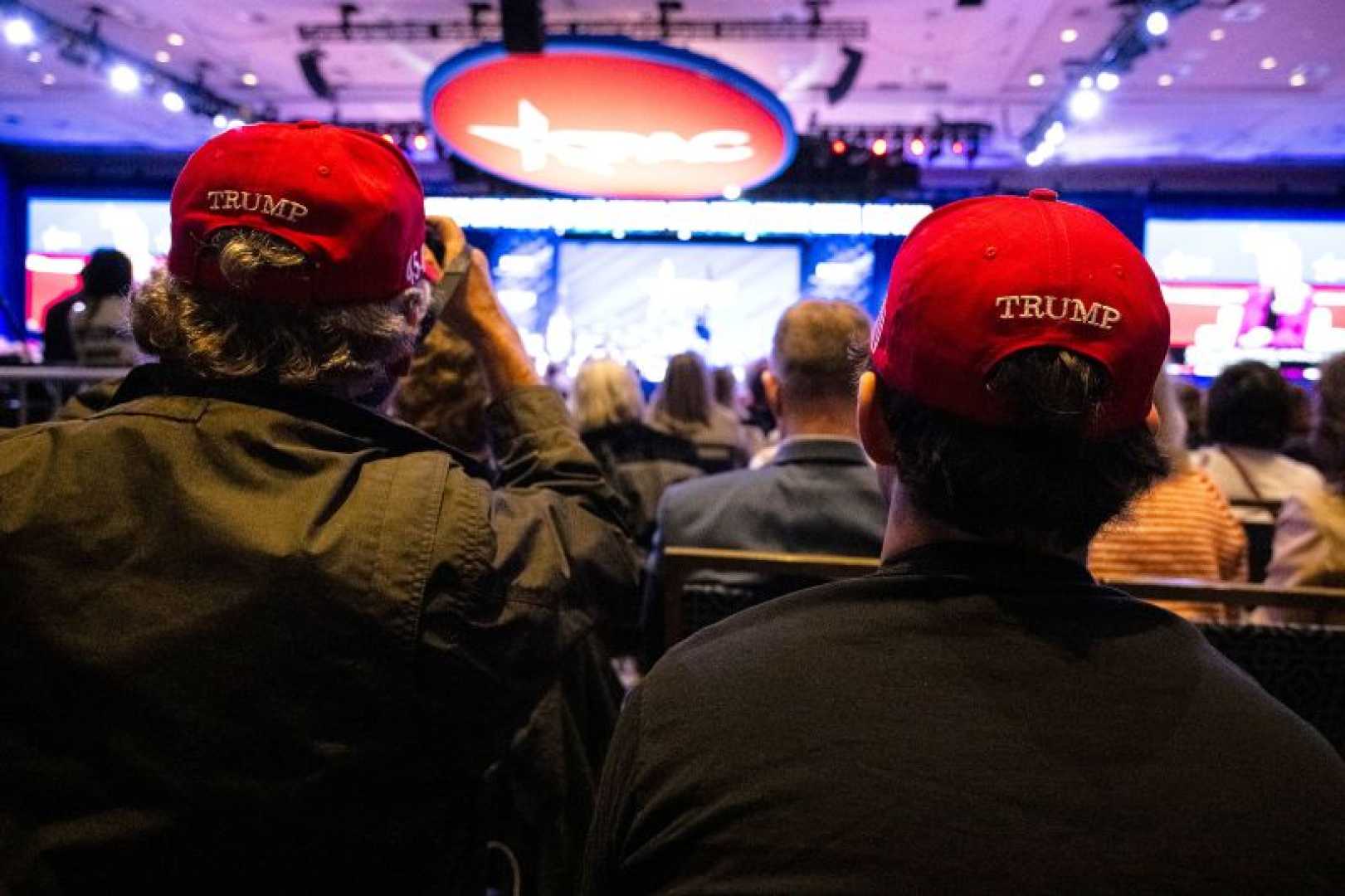Politics
Trump Supporters Reject Big Tech Relief at CPAC 2025

OXON HILL, Md. — The public reconciliation between President Donald Trump and major technology leaders appears shaky at the 2025 Conservative Political Action Conference (CPAC), as attendees express disdain for industry giants like Facebook and Google.
During the event held in Oxon Hill, Maryland, a speaker denounced Google as “the worst of the worst” while prominent conservatives openly jeered at mentions of Facebook and its CEO Mark Zuckerberg. This harsh reaction reflects the lingering bitterness from Trump supporters, who have not forgotten social media platforms’ previous actions to deplatform notable right-wing figures, including Trump himself.
In stark contrast to the negative reception of certain tech companies, Elon Musk, the owner of X (formerly Twitter), garnered a hero’s welcome at the conference. Musk, equipped with a chainsaw gifted by Argentine President Javier Milei, often characterized his relationship with the government as both audacious and meme-worthy. “There’s living the dream, and there’s living the meme,” he quipped to an energized audience.
Despite the high-profile outreach from tech executives like Zuckerberg, Amazon’s Jeff Bezos, Apple’s Tim Cook, and Google’s Sundar Pichai, their attempts seem insufficient to mend fences with Trump’s base. “I don’t think that he’s going to buy antitrust amnesty,” remarked conservative legal advocate Mike Davis during a CPAC panel titled “Nowhere to Run: The Takedown of the Left Tech,” highlighting skepticism toward tech giants amid their efforts to curry favor.
CPAC attendees expressed deep-seated resentment over past interactions with tech companies. “Screw Facebook,” proclaimed Karli Bonne, a prominent pro-Trump advocate, during a social media training session aimed at MAGA activists. “You gotta do your thing, but (Zuckerberg) can kiss my ass.”
Despite Trump’s improved standing and some leaders within the tech industry attempting to align themselves with his administration, animosities from the past remain evident. Several Republican lawmakers are still contemplating revising legal protections that currently shield tech companies from being held accountable for user-generated content.
Missouri Senator Eric Schmitt voiced concerns about this ongoing issue at CPAC, saying, “You’re either gonna be an open platform or you’re gonna be a publisher who can get sued,” referring to broader debates over content moderation practices.
The relationship between Trump and Silicon Valley has evolved significantly since his presidency began. Technology executives stood behind him during his inauguration and regularly receive acknowledgments in his speeches. Yet underneath this facade, a substantial rift persists among grassroots supporters who eagerly criticize the same companies that have embraced Trump.
Furthermore, a panel critiquing “woke” corporations pointed fingers at finance moguls, including Larry Fink from BlackRock and Jamie Dimon from JP Morgan, for their relationships with Trump. This sentiment extended to the pharmaceutical industry, where Pfizer CEO Albert Bourla faced boos during his introduction by Trump at a CPAC event.
Steve Bannon, a former Trump strategist and influential figure in the MAGA movement, cautioned attendees against trusting the same tech leaders who recently altered their business practices to regain favor. “All these guys don’t support us,” Bannon stated, echoing a skepticism that resonates with many attendees at CPAC.
To counter mainstream tech dominance, several alternative platforms and companies emerged within the conservative movement, promoting themselves as champions against “woke” ideologies. CPAC organizer Matt Schlapp urged participants to scout for companies “fighting the woke crap” amid the convention’s marketplace.
Yet, the competitive landscape remains complex as traditional tech brands regain traction. X, which rebranded after Musk’s acquisition, continues to influence conversations among conservatives who once felt alienated by its policies. Parler, another alternative platform that faced bans from major tech companies in the aftermath of the Capitol riot, emphasizes its commitment to ownership and transparency in the digital space.
“Can we trust Zuckerberg that he’s going to stop censoring?” Amy Robbins, a spokesperson for Parler, asked during CPAC, echoing a sentiment shared by many conservatives wary of returning to platforms perceived as hostile.












